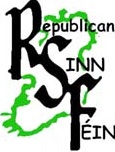
Republican Sinn Fein said approaches have been made by Special Branch and MI5 in an effort to get party members to turn informer.
On one such occasion, a member of RSF in north Armagh was approached by two plain-clothes individuals at the reception area of the PSNI station where he was attending on an unrelated matter.
“One of them asked if I was willing to help do something about the awful people in my area,” he said.
“They stated that these people could be family members, friends and neighbours, to which I made no reply. They offered to give me a contact number, asked how much money I required and when could we meet again. At that point I walked away without answering”.
On March 3, 2009 an attempt was made by MI5 to recruit a member of the Francis Hughes Cumann of RSF in Glasgow as an informer.
“The [MI5] agent made it clear to him that several members of the Francis Hughes Cumann of Republican Sinn Fein have been under surveillance by the authorities, and that they had his mobile number, a spokesman for the Cumann said.
“They asked the Cumann member if he would help them with gathering information on various people they had written down on a list. The Cumann member told them he was not prepared to give them any information regarding anyone. They then said they would contact him in the near future, before allowing him to leave the station.
“We urge all Republicans to be wary of any other such attempts by British ‘security forces’ and report them to the Republican Movement immediately. Acts such as this only serve to strengthen our resolve”.
EVIDENCE RULED OUT
Meanwhile, a High Court judge has reversed his decision to allow an informer to give evidence at the Omagh bomb civil action.
Sean O’Callaghan was to testify against jailed republican leader Michael McKevitt, one of five men being sued over the 1998 attack.
Justice Morgan decided in December that the former spy, who claimed he was once in charge of the Provisional IRA’s southern command, could be allowed to give evidence.
Since then, however, notes and files held on O’Callaghan by his handlers on both sides of the Irish border could not be found despite several requessd by the defence.
It took the PSNI two months to produce a small amount of material, but it warned it would seek a gag order to allow them to retain sensitive information. There was no response at all from the southern Garda police.
Justice Morgan ruled he was no longer prepared to allow the witness, describing O’Callaghan as a “practised deceiver” who was at one stage being paid by the plaintiffs.
The judge’s decision to stop O’Callaghan from going into the witness box came as lawyers for victims’ relatives closed their case after 10 months of evidence.
“Questions arise on the issue of credibility. Is Mr O’Callaghan dropping Mr McKevitt in it... and to what extent can his evidence be judged reliable in relation to that?” the judge asked.
![[Irish Republican News]](https://republican-news.org/graphics/title_gifs/rn.gif)
![[Irish Republican News]](https://republican-news.org/graphics/title_gifs/harp.gif)

